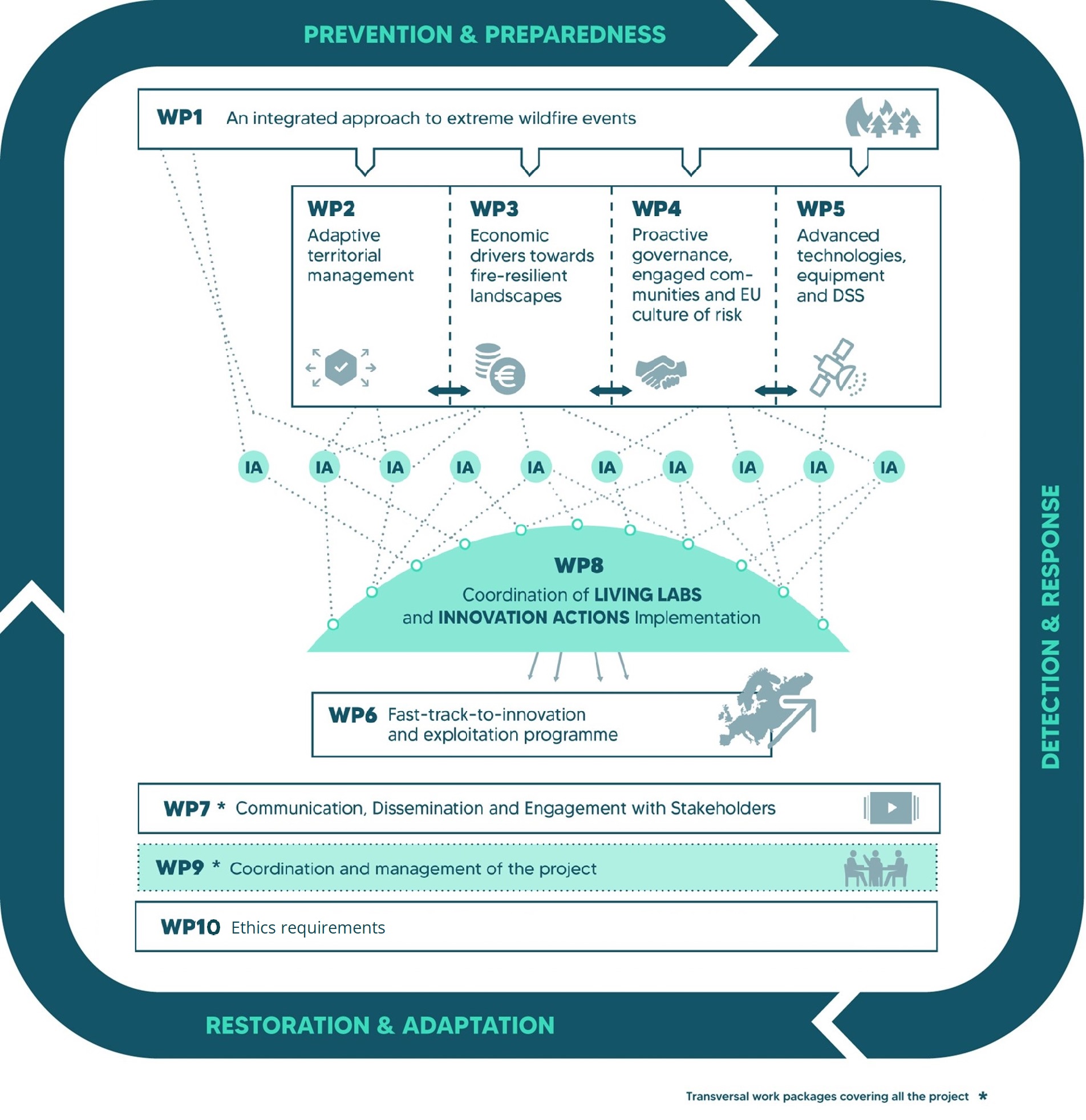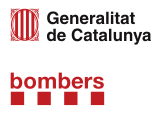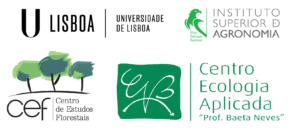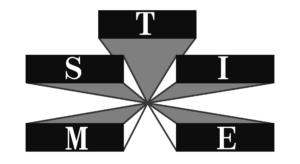WORK PACKAGES
FIRE-RES’ work is organised across 10 Work Packages
- WP1 “An integrated approach to extreme wildfires events"
- WP2 “Adaptive territorial management”
- WP3 “Economic drivers towards fire resilient landscapes”
- WP4 “Proactive governance, engaged communities and EU culture of risk”
- WP5 “Advanced technologies, equipment and decision support systems”
- WP6 “Fast-track-to-innovation and exploitation programme”
- WP7 “Communication, dissemination and engagement with stakeholders”
- WP8 “Coordination of Living Labs and Innovation Action implementation”
- WP9 “Coordination and management of the project”
- WP10 “Ethics requirements”
The conceptual fundaments of the FIRE-RES project will be defined within Work Package 1 and further developed through the other Work Packages. At least 34 Innovation Actions will be developed from Work Package 1 to 5, then tested within the 11 FIRE-RES Living Labs (WP8) and upscaled through fast-track-to-innovation and the exploitation strategy of the project (WP6). The impact of the actions is then ensured thanks to dedicated tasks for the communication, dissemination and engagement with stakeholders (WP7) and strong coordination and project management activities (WP9).
Led by the Catalan Fire and Rescue Services (Spain), WP1 aims to co-design a shared framework on Extreme Wildfires Events based on the knowledge and lessons learned with respect to fire-resilient landscapes. It will combine climate and biophysical data to build future scenarios and alternatives and will demonstrate fire management techniques that are based on an integrated fire management approach.
Led by the Instituto Superior de Agronomia (Portugal), WP2 aims to assess the capacity of novel fire management models and adaptive management strategies to mitigate the impacts of Extreme Wildfire Events on forest ecosystems, and the provision of ecosystem services.
Led by Forest Science and Technology Centre of Catalonia (Spain), this WP aims to explore, assess, develop, and test economic policies and interventions (value chain innovations and monetary incentives) that could enable and stimulate the uptake of the landscape management and planning options identified in WP1 and WP2 and thus contribute to minimize losses from Extreme Wildfire Events.
Led by the International Emergency Management Society AISBL (Belgium), WP5 will design and test novel solutions to ameliorate the governance of Extreme Wildfire Events, including the engagement of society.
Led by Technosylva, WP5 will provide advanced technological solutions, equipment and decision support systems to the stakeholders dealing with Extreme Wildfire Events in Europe.
Led by European Forest Institute (Finland), WP6 will trigger the up-scale and out-scale of innovative wildfire risk mitigation solutions thanks to the creation of new strategic partnerships to connect actors in the sector and stimulate investments, the implementation of Open Innovation Campaigns, and the synthesis and exploitation of the FIRE-RES Innovation Actions.
Led by Euromontana (France), this WP aims to maximise the visibility of FIRE-RES activities and findings through a targeted communication and dissemination strategy and the involvement of the main target audiences.
Led by Forest Science and Technology Centre of Catalonia (Spain), WP8 will coordinate the activities carried out in the 11 FIRE-RES Living Labs, by creating common procedures and ensuring the communication between Living Labs, Innovation Actions’ coordinators and WP Leaders. Moreover, this WP will oversee the impact assessment of the project’s Living Lab.
Led by Forest Science and Technology Centre of Catalonia (Spain), WP9 will establish the structure and conditions to guarantee an effective, coordinated and successful implementation and completion of the project and will also oversee clustering with related projects and lead the relationships with other networks.
Led by Consorci Centre de Ciencia i Tecnologia Forestal de Catalunya Forest Science and Technology Centre of Catalonia (Spain), WP10 will ensure the compliance of the ethics’ requirements all along the project’s implementation.







